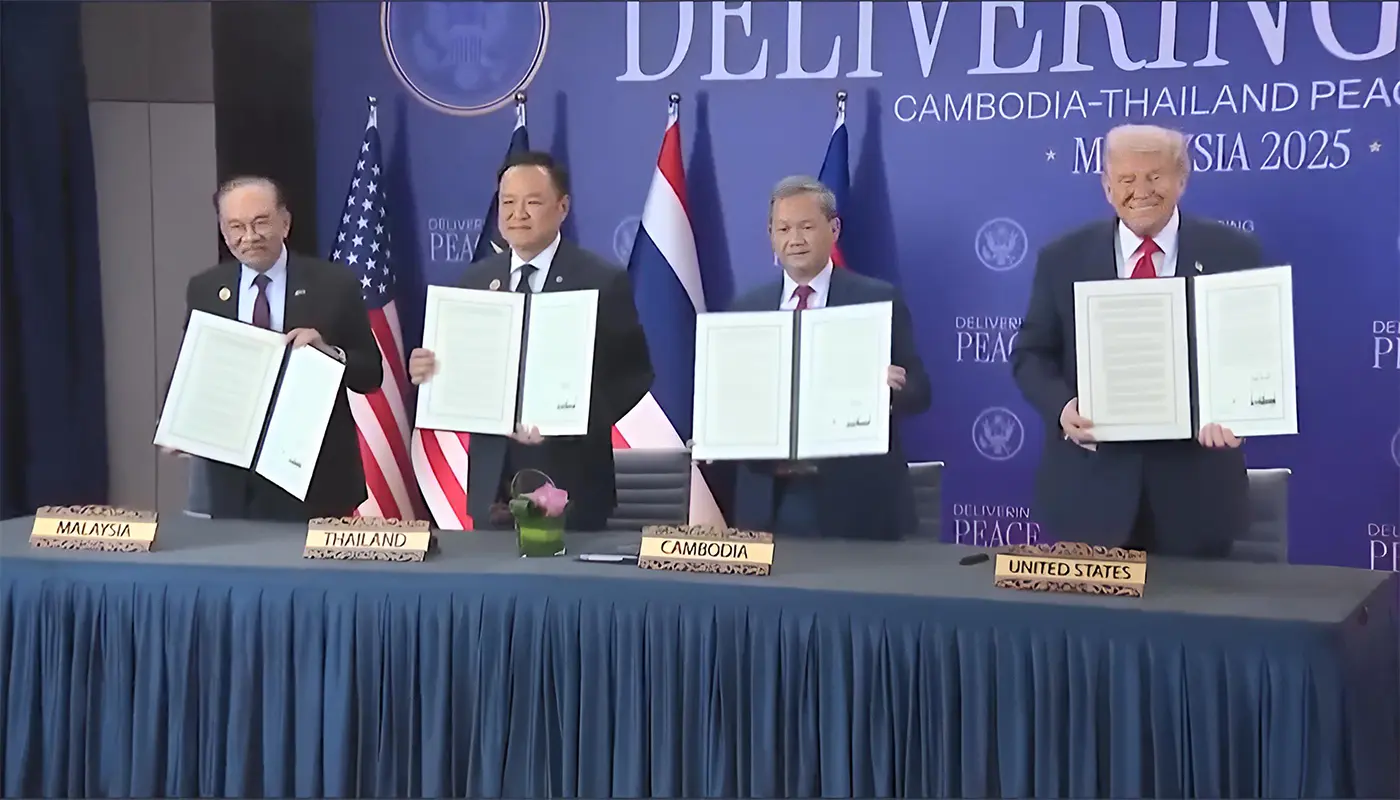On the opening day of the 47th ASEAN Summit in Kuala Lumpur, leaders from Thailand and Cambodia formally signed a landmark peace accord addressing their long-running border dispute. The deal, dubbed the “KL Peace Accord” was witnessed by Malaysian Prime Minister Anwar Ibrahim in his role as ASEAN Chair and US President Donald Trump.
The accord was signed by Thai Prime Minister Anutin Charnvirakul and Cambodian Prime Minister Hun Manet. It commits both nations to cease hostilities, withdraw heavy weapons from their contested border region, and release detained soldiers.
The signing comes after a flare-up of military activities in July along the roughly 817-kilometre frontier, which displaced civilians and heightened diplomatic tension.
Key commitments and regional significance
The KL Peace Accord enshrines several key measures: the withdrawal of heavy weapon systems from border zones, the destruction or removal of landmines and other explosives, the release of 18 Cambodian soldiers previously detained by Thailand and the deployment of an ASEAN-observer team to monitor compliance.
President Trump described the agreement as “historic,” noting that it represented a breakthrough many said could not be achieved. Meanwhile, Prime Minister Anwar highlighted that reconciliation should not be mistaken for concession, but rather seen as an act of courage.
For ASEAN, the deal stands out as a concrete example of intra-regional conflict resolution under its banner. Analysts say it strengthens the bloc’s relevance in ensuring peace and stability in Southeast Asia, especially amid broader geopolitical competition involving external powers.
Logistics and diplomatic context
The ceremony was held at the Kuala Lumpur Convention Centre on the sideline of the summit hosted by Malaysia under the theme “Inclusivity and Sustainability”.
In parallel, President Trump used the occasion to emphasise the United States’ commitment to regional partnership and peace-making in the Indo-Pacific, as part of a broader diplomatic push while attending the summit.
What lies ahead
Implementation will now become the critical test. The observer mechanism must function, and the border withdrawal provisions need to be followed through to avoid a relapse of violence. Both Thailand and Cambodia have pledged to maintain the truce, but sources note the risk of flare-ups remains unless the framework is backed by sustained political will.
For Malaysia and ASEAN, the success of this deal bolsters the bloc’s role as a hub of diplomacy rather than simply a platform for economic cooperation. It may also set a precedent for how ASEAN handles other territorial or cross-border tensions among its members.






